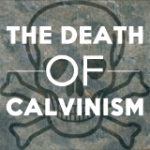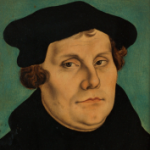Editor’s Note: Below is a guest post from Brendan McCaskell. Brendan has a B.A. in Business Administration and Biblical Studies from Canadian Mennonite University. He is also a youth pastor at City Church in Winnipeg, Manitoba. Find his blog at Reformed Ramblings.
The Gospel Coalition bi-annual conference took place in sunny Orlando, Florida, a welcome relief from the (still!) two feet of snow in Winnipeg, Canada. Thousands of people gathered together with a single purpose: To revel in God’s gracious Gospel.
For those of you who have not encountered The Gospel Coalition, I would urge you to explore their message and vision. It is filled with people from across the world and various denominations who in a unified voice claim the centrality of God’s Gospel in all parts of a Christian walk.
At TGC13 (The Gospel Coalition Conference 2013) The focus was not on personal exaltation, but God’s adoration. In his workshop on Faithfulness and Fruitfulness, Matt Chandler described how he came into contact with “Big God” theology. He attended a conference where John Piper was the main speaker and in one of his sessions Piper asked the question, “Who did Jesus Die for?” Chandler immediately yelled, “us!” Only to have Piper expound for the next 45 minutes that he was just partly right.
God took the center stage at TGC13. He was the focal point of the entire event; from workshops to sessions, God’s graciousness revealed through Christ was the lens in which everything was seen.
Before the national conference began there was a mission-focused pre-conference. Many speakers including David Platt, Don Carson, and Stephen Um talked about how, “God’s love compels us” to reach the lost. A dedicated and resourceful listener put together a free ebook of the pre-conference sessions.
The official conference began with John Piper establishing the Biblical trajectory of the plenary sessions in the Gospel of Luke. He urged the conference to be strongly rooted in their beliefs, “People know things like clouds ready to be blown away. We need to know them like mountains.” This mountain needs to be rooted in Biblical truth. Piper went on to say that, “we miss God in the Bible like we miss air.” We often forget that the main character of Bible is God himself.
TGC13 continued with more strong sessions from Colin Smith, Crawford Loritts, Don Carson, Kevin DeYoung, Stephen Um, Gary Millar, and closed with Tim Keller. Each speaker took a section of Luke and expounded it in ways that glorified God and exhorted the listeners to respond. While not all of the sessions proved as helpful as others, they all regarded the text with careful reverence.
Kevin DeYoung spoke on one of the most preached passages of Luke, the parables of the lost found in Luke 15. He gave careful attention to the “lost” and God’s active seeking out of the lost. Just as important as God saving the lost is God rejoicing over the found. DeYoung emphasized the contrast between the pharisee’s loathing of sinners and God’s profound love for them. He left the audience with a simple charge, “No one in history has been more inclusive of sinners… and more intolerant of sin than Jesus. [We need] more courage. What kind of church has no room for sinners? Do you receive them?”
Keller concluded the conference with a message focused on the vindication of Christ. Keller stressed the importance of the crucifixion event and how it is the “key to understanding all scripture.” The cross is the central event that defines Christianity, the Bible, and all of history. There is not interpretation outside of it and as Don Carson said earlier in the week, “The Bible needs to be seen in light of the impending shadow of the cross.”
These sessions consisted of only a portion of the conference. Each day was filled with worship led by the Getty’s, the chance to meet people from over 43 countries, a HUGE bookstore, many God-centered booths advertising their new programs, and much more. Yet, in all the activities and commotion I saw, there was an understanding of why we were there.












